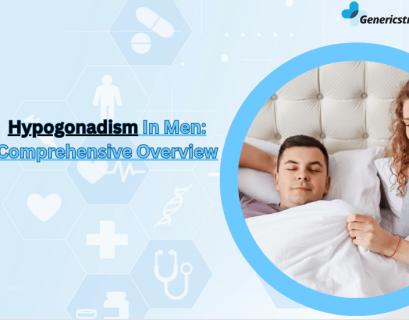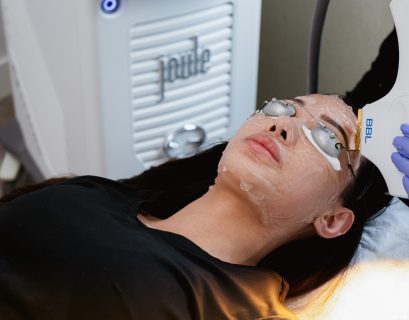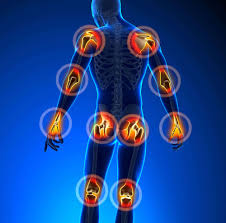Eating disorders are complex mental health conditions that impact millions of individuals worldwide. According to the National Eating Disorders Association (NEDA), approximately 20 million women and 10 million men in the United States will experience a clinically significant eating disorder at some point in their lives. These disorders can lead to severe physical and psychological consequences, making recovery a challenging journey. One essential element of this recovery process is the role of an eating disorders nutritionist. In this article, we’ll explore why working with a specialized dietitian is vital for long-term recovery.
Understanding Eating Disorders
Eating disorders encompass a range of conditions, including anorexia nervosa, bulimia nervosa, and binge eating disorder. Each of these disorders is characterized by unhealthy eating behaviors, distorted body image, and, often, underlying psychological issues. According to the World Health Organization (WHO), the global prevalence of eating disorders has been on the rise, particularly among adolescents and young adults.
The Impact of Nutrition on Recovery
The journey toward recovery from an eating disorder is not just about overcoming unhealthy eating patterns; it also involves restoring physical health and psychological well-being. Here’s where an eating disorders nutritionist plays a crucial role:
- Rebuilding Nutritional Foundations: Many individuals with eating disorders suffer from malnutrition due to restrictive eating or binge-purge cycles. A specialized nutritionist can help create a personalized meal plan that addresses specific nutritional deficiencies, ensuring the body receives the essential nutrients it needs to heal.
- Understanding Food Relationships: An eating disorders nutritionist helps clients develop a healthier relationship with food. They teach clients to view food as nourishment rather than as a source of guilt or anxiety. This shift in perspective is crucial for long-term recovery and helps prevent relapse.
The Role of an Eating Disorders Nutritionist
An eating disorders nutritionist provides more than just meal plans; they offer comprehensive support that addresses the physical, emotional, and psychological aspects of recovery.
Tailored Nutritional Guidance
Each person’s journey with an eating disorder is unique. A specialized nutritionist tailors their approach based on individual needs, preferences, and medical histories. This personalized guidance helps clients navigate the complexities of nutrition, making it easier to integrate healthy eating into their lives.
Collaborative Care
Effective recovery from an eating disorder often requires a multidisciplinary approach. An eating disorders nutritionist works alongside therapists, medical doctors, and other health professionals to create a cohesive recovery plan. This collaboration ensures that all aspects of a client’s health are addressed, promoting holistic recovery.
The Psychological Benefits
Building Self-Efficacy
Working with a nutritionist for eating disorders empowers individuals to take charge of their recovery. Through education and support, clients learn to make informed decisions about their nutrition. This knowledge fosters self-efficacy, which is crucial for long-term success.
Addressing Underlying Issues
Eating disorders are often rooted in deeper psychological issues, such as trauma, anxiety, or depression. A nutritionist can help clients recognize these underlying issues while developing coping strategies that support healthier eating habits. This dual focus on nutrition and mental health is vital for achieving lasting recovery.
Statistical Insights
The importance of working with a specialized nutritionist is backed by research. A study published in the Journal of Eating Disorders found that individuals who engaged in nutritional counseling as part of their recovery process had significantly lower relapse rates than those who did not. Additionally, the American Psychiatric Association notes that integrated care, which includes nutritional support, leads to improved outcomes for individuals with eating disorders.
- Statistical Data: According to NEDA, approximately 35% of individuals with eating disorders also struggle with substance use disorders. This co-occurrence underscores the need for a comprehensive treatment approach that includes nutrition, therapy, and medical care.
Finding the Right Eating Disorders Nutritionist
When seeking an eating disorders nutritionist, it’s essential to look for someone with specific training and experience in treating eating disorders. Consider the following factors:
Credentials and Experience
Ensure the nutritionist has relevant credentials, such as Registered Dietitian Nutritionist (RDN) certification, and experience in treating eating disorders. This expertise is crucial for effective treatment.
Personalized Approach
Look for a nutritionist who emphasizes a personalized and compassionate approach. Recovery is not one-size-fits-all; having a nutritionist who understands this will enhance the recovery experience.
Collaborative Spirit
Choose a nutritionist who is open to working collaboratively with your existing treatment team. A cohesive approach to recovery increases the chances of long-term success.
Conclusion
Recovering from an eating disorder is a challenging but achievable journey. The role of an eating disorders nutritionist is vital in this process, providing essential nutritional guidance, psychological support, and personalized care. By addressing the physical, emotional, and psychological aspects of recovery, these professionals help individuals rebuild their lives, fostering a healthier relationship with food and themselves.
For anyone struggling with an eating disorder, seeking the help of a specialized nutritionist can be a game-changer. It’s not just about eating well; it’s about embracing a holistic approach to health that paves the way for lasting recovery and well-being. Remember, you are not alone, and help is available.




















